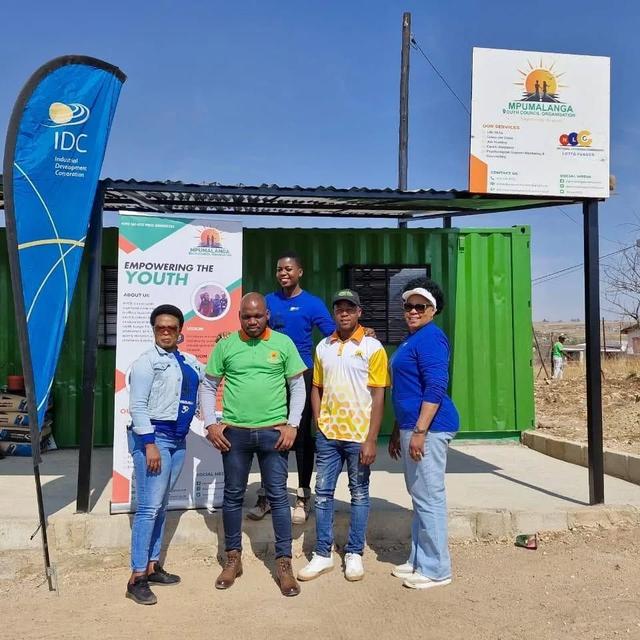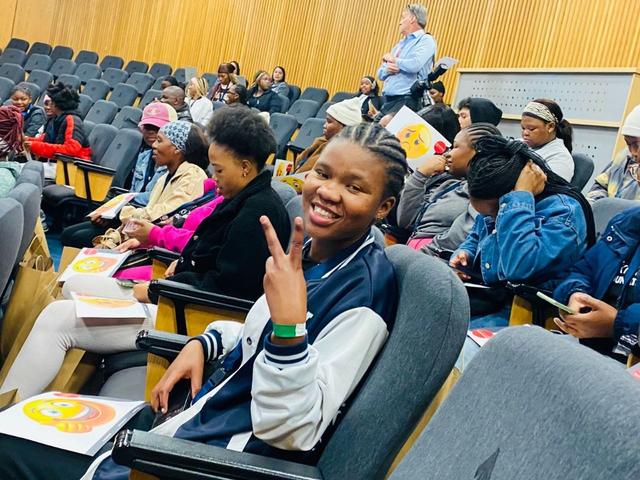
- Home
- Information Centre
- Mind The Gap Gender In Csi And Giving Culture
Mind the GAP. Gender in CSI and Giving Culture.
Enjoy this guest post from Charlene Lackay, Group CSI Manager at Momentum Metropolitan Holdings.
Women have made massive strides in the workplace in recent years, indicating an ability and aptitude to climb the ladder and become highly effective business leaders. But more than just proving to be a force to be reckoned with at the boardroom table, women have shown that they lead with heart – consistently proving to give, donate and volunteer more.

In fact, multiple studies have found this to be true. The United Nations’ State of the World’s Volunteerism Report, focusing on the role of gender in volunteerism for community resilience, found that women globally volunteer more than their male counterparts – 57% as opposed to 43%. (forgood's demographics for South African volunteers shows an even stronger trend towards women volunteers - more than 70%! - Ed)
Research carried out by Indiana University discovered that women also give or donate more, with women in the top 25% of salary earners giving 156% more than men in the same category. And the most recent Global Trends in Giving Report revealed that women give more – no matter what form it takes, from donating to crowdfunding campaigns or giving through Facebook Fundraising Tools to volunteering or attending fundraising events.
Uncovering the power of empathy and nurturing in the workplace
In South Africa, the Momentum University of South Africa (Unisa) Household Financial Wellness Index showed that women scored much lower on net wealth than men, and that women had tangibly lower assets – financial and otherwise – than men.
Why then do we consistently see women give or volunteer more? Some sources attribute it to women being more empathetic and altruistic, with women giving to promote social change or to assist those in need who are less fortunate. Other sources point to a motherly or nurturing instinct being the cause – because even though women are found to volunteer more at all ages, it increases when they have children.
Ten percent more women volunteer than men between 35 and 45 – typically the age group of women starting or growing their families. These women are generally looking after their children, and often their ageing parents, and as such are more attuned to social needs and wanting to help where they can. Based on my own observations and, I believe it is a combination of empathy and nurturing.
All the women I know, both personally and professionally, want to help keep the causes close to their hearts alive in whatever way they can. However, in a day and age where people have hectic lifestyles and are pressed for time, this can be difficult.
Perhaps this helps explain why I’ve seen payroll giving rise as a trend in South Africa. This is where an agreed amount is deducted from an employee’s salary and is a simple, easy and effective way for employees to contribute to the charities of their choice when they don’t have the luxury of time to volunteer.
I contribute to the National Sea Rescue Institute and Doctors Without Borders among others, for example, and have found it the most convenient and easy way to help the organisations that are important to me. And I’m by no means the only employee at Momentum Metropolitan to contribute in this way.
A culture of giving
We have a culture – driven by our leaders at the top – of payroll giving and contributing wherever and however possible to the causes that matter to us. We have found that nothing beats leading by example; not only does it have a markedly positive impact on team dynamics, it also improves productivity.
As we have seen in our own company, many of today’s workers are looking for careers and jobs that have a bigger purpose. Being able to contribute meaningfully to that purpose makes people more motivated and productive.
This makes it critical for us as businesses to harness the power of giving, especially with our female workforce, who have already displayed such a propensity for giving. Through this giving, whether it be money, time or other resources, we can create a groundswell of change for good that will become a tidal wave.




![[WEBINAR] Leveraging skills-based employee volunteering to amplify CSI](/_next/image?url=https%3A%2F%2Fcdn.sanity.io%2Fimages%2Fxquleem7%2Fproduction%2Fd64d551fd490d43a6dd186f3df8edd38aa084a18-1270x710.png&w=640&q=75)
